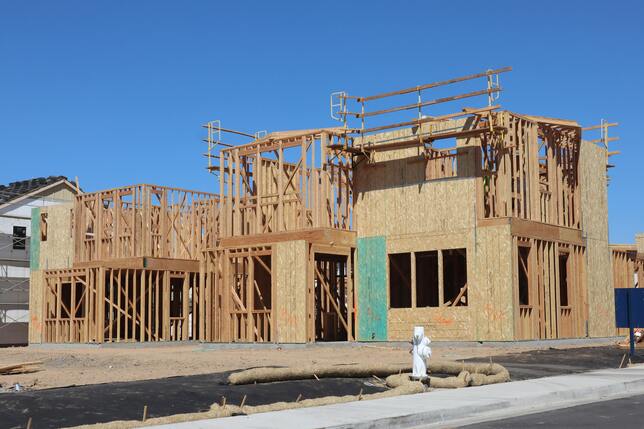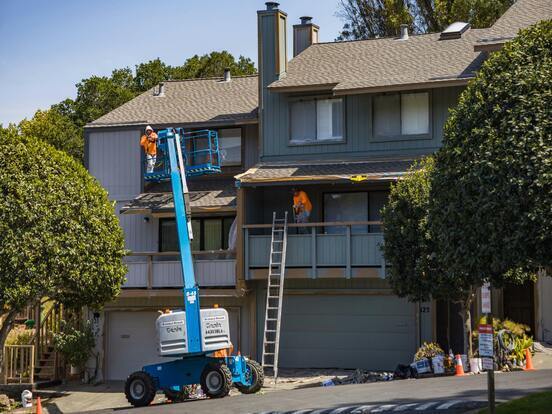Expanding Horizons: Cost Considerations for House Extensions in Washington DC and Maryland
Are you a homeowner in Washington DC or Maryland considering a house extension? Expanding your living space can bring numerous benefits, from enhancing your home’s functionality to significantly boosting its market value. However, understanding the cost considerations is crucial before embarking on such a project. This blog post will offer you a comprehensive guide on the costs associated with house extensions in the Washington DC and Maryland area, helping you make informed decisions.
Benefits of House Extensions
Enhanced Living Space
One of the most obvious benefits of a house extension is the increased living space. Whether you’re adding an extra bedroom, expanding your kitchen, or creating a new living area, more space enhances your home’s comfort and usability. This is particularly beneficial for growing families who need more room but don’t want to move out of their neighborhood.
Increased Property Value
A well-designed extension can significantly boost your property’s market value. Potential buyers are often willing to pay more for a home with additional functional spaces. Whether it’s an extra bathroom or a spacious kitchen, these features can make your home more appealing and competitive in the real estate market.
Personalized Living
House extensions allow you to customize your living space to fit your lifestyle. Whether you want a home office, a gym, or a playroom for the kids, extensions offer a unique opportunity to tailor your home to suit your personal needs. This level of customization is not always possible with new homes or existing properties on the market.
 Factors Affecting Extension Costs
Factors Affecting Extension Costs
Size and Scope of the Project
The size and complexity of your extension project will significantly impact the overall cost. Larger extensions require more materials and labor, while complex designs or multi-story additions will also drive up costs. Generally, single-story extensions are more affordable compared to double-story expansions.
Materials and Quality
The type of materials you choose will also affect the cost. High-end materials like hardwood floors, marble countertops, and custom-made fixtures will increase expenses. Conversely, opting for standard-grade materials can help you stick to a budget without compromising on quality.
Labor and Contractor Fees
Labor costs can vary widely depending on the contractor and the complexity of the work. It’s essential to hire experienced and reputable contractors who can deliver high-quality results. Keep in mind that skilled labor will come at a premium, but cutting corners on labor can lead to costly mistakes and subpar workmanship.
Permits and Regulations
In Washington DC and Maryland, obtaining the necessary permits and adhering to local building codes is a must. Permit fees can add up, and failure to comply with regulations can result in fines and delays. It’s essential to factor these costs into your budget from the outset.
Average Cost Ranges
Single vs. Double Story Extensions
Single-story extensions in the Washington DC and Maryland area typically range from $80,000 to $150,000, depending on the size and materials used. Double-story extensions, on the other hand, can cost between $150,000 and $300,000. The added cost is due to the structural complexities and additional materials required for multi-level construction.
Kitchen Extensions
Kitchen extensions are among the most popular types of home expansions. In this region, a kitchen extension can range from $40,000 to $100,000, depending on the size, design, and materials. High-end kitchens with custom cabinetry and luxury appliances can exceed this range.
Living Room Extensions
Living room extensions typically cost between $50,000 and $120,000. The price can vary based on the project’s complexity and the quality of finishes chosen. Adding features like a fireplace or custom-built shelving can increase the overall cost.
Financing Options and Tips
Home Equity Loans
One common way to finance a house extension is through a home equity loan. This allows you to borrow against the equity you’ve built up in your home. Interest rates are generally lower than other types of loans, making it an attractive option for many homeowners.
Personal Loans
Personal loans are another option, although they usually come with higher interest rates compared to home equity loans. This could be a good option if you need a smaller amount or if you don’t have enough equity in your home to qualify for a home equity loan.
Budgeting Tips
To manage costs effectively, it’s crucial to set a realistic budget and stick to it. Get multiple quotes from contractors to compare prices and ensure you’re getting a fair deal. Additionally, consider any unexpected expenses that might arise during the project and include a contingency fund in your budget.
Hiring Contractors
 Research and Recommendations
Research and Recommendations
Start by researching contractors in your area and asking for recommendations from friends, family, or neighbors who have completed similar projects. Look for contractors with positive reviews and a portfolio of successful projects.
Obtaining Quotes
Get detailed quotes from at least three contractors before making a decision. Ensure the quotes include a breakdown of costs for materials, labor, and any additional fees. This will help you compare and make an informed choice.
Checking Credentials
Verify the credentials of any contractor you’re considering. Make sure they are licensed and insured to work in your area. Check for any complaints or issues with local regulatory agencies to avoid potential problems down the line.
House extensions can offer numerous benefits, from increased living space and enhanced functionality to a significant boost in property value. However, understanding the cost considerations is crucial for a successful project. By considering factors like project size, materials, labor, and permits, you can better plan your budget and avoid unexpected expenses.
Whether you’re looking to add a single-story extension, expand your kitchen, or create a new living area, careful planning and budgeting are essential. Financing options like home equity loans and personal loans can help make your dream extension a reality.
Hiring experienced and reputable contractors is equally important to ensure high-quality results. By doing your research, obtaining multiple quotes, and checking credentials, you can find the right contractor for your project.
If you’re ready to explore the potential of a house extension, start by assessing your needs and setting a realistic budget. With careful planning and the right resources, you can transform your home into the perfect space for you and your family.
Feel free to share your house extension experiences in the comments or contact us for more information on how we can help you achieve your home improvement goals.



 Research and Recommendations
Research and Recommendations

